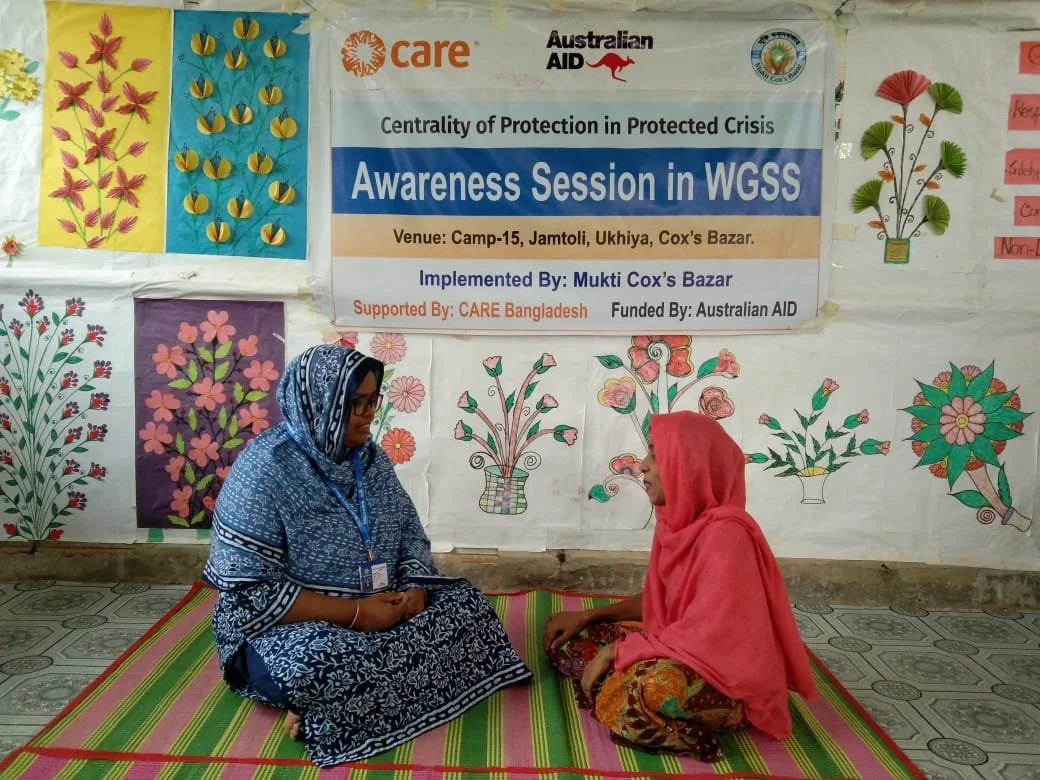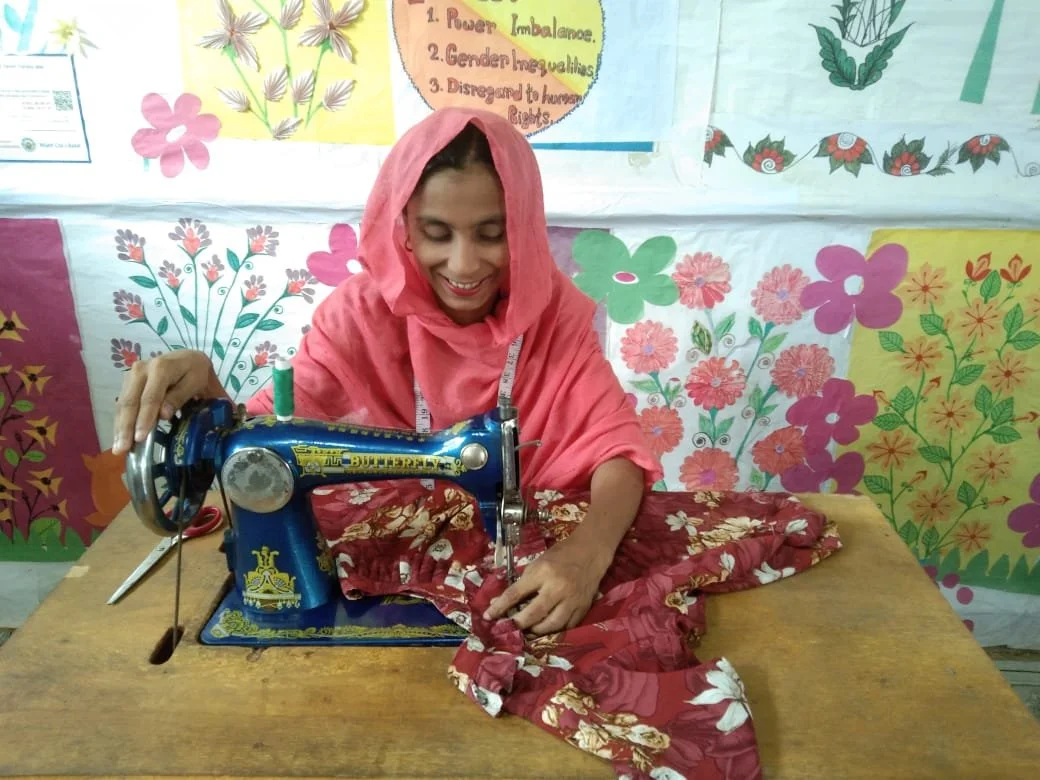Easing the pressure on refugee families in Cox’s Bazar
Above: Services at the Women and Girls Safe Space were transformative for Salma* and her family. Photo: Sazia Afrin/Mukti Cox’s Bazar
Above: Tailoring and sewing training helped Salma* find a creative outlet and learn new skills. Photo: Sazia Afrin/Mukti Cox’s Bazar
In Camp 15 in Cox’s Bazar, 33-year-old Salma* was grappling with the grief of displacement and the pressures of caregiving. After fleeing violence in Myanmar, she became the primary caregiver for five young children and Abdullah*, her husband, who lives with a physical impairment caused by fire-related injuries. Limited support left Salma feeling overwhelmed, isolated, and mentally exhausted.
During door-to-door visits undertaken by female volunteers of the Women and Girls Safe Space (WGSS) operated by CARE and its local partner, Mukti Cox’s Bazar, with the support of the Australian Humanitarian Partnership (AHP), Salma found out about a place where she could find support. WGSSs provide psychosocial support, mental wellbeing exercise sessions, skill development sessions and recreational activities. The women and girls in the camps fondly call these centres Shantikhana — a place of peace.
The volunteer found Salma exhausted from shouldering her day-to-day responsibilities. She was hesitant and shy, spending nearly all her days at home. The volunteer invited her to visit the WGSS — an offer Salma took up soon after her meeting. She was warmly welcomed by a trained female caseworker. Through regular one-on-one psychosocial sessions, Salma began to share her challenges, process her grief, and rebuild her confidence in a confidential and supportive environment.
At the WGSS, Salma also joined group sessions on gender-based violence (GBV), women’s rights, and emotional resilience. She participated in healing activities such as storytelling, breathing exercises, and skill-building activities such as sewing and tailoring. This helped Salma regain a sense of purpose and improved her mental wellbeing by engaging in productive, creative work. These vocational skills also strengthened Salma’s resilience by opening opportunities for social connection and future livelihood options within the camp.
The presence of a child-friendly space allowed her to engage fully while her children played and learned safely nearby.
“Before, I didn’t have even a moment to breathe or speak about my pain. At Shantikhana, I found people who listened. It became a place where I could heal,” Salma shared.
It has not only been Salma who has benefited; her adolescent daughter Asma* and Abdullah also found required support through the WGSS. Asma enrolled in peer support groups and Girl Shine life skills sessions at the centre, giving her a safe space to grow and connect with other girls. Recognising the value of inclusive family support, CARE also linked Abdullah to a disability support group where he received psychosocial assistance. He is currently awaiting the provision of an assistive device, which will improve his mobility, autonomy, and dignity.
Today, Salma is emotionally stronger and actively encourages other women in her block to access protection services and speak out about their challenges.
"Coming to Shantikhana helped me find peace in my heart,” Salma said. “For the first time since we arrived, I feel I can breathe and face each day with courage. I hope Shantikhana’s doors never close so that other women like me can heal and find peace here."
Her family’s transformation from isolation and stress to inclusion and resilience demonstrates how integrated GBV and disability-inclusive programming, supported by the Australian Government through AHP, can restore hope, dignity, and safety for crisis-affected families.
This activity was implemented by CARE and Mukti Cox’s Bazar with Australian Government support through the Australian Humanitarian Partnership. The activities are part of the CARE-led consortium response with Oxfam and Plan International.
*Names changed



